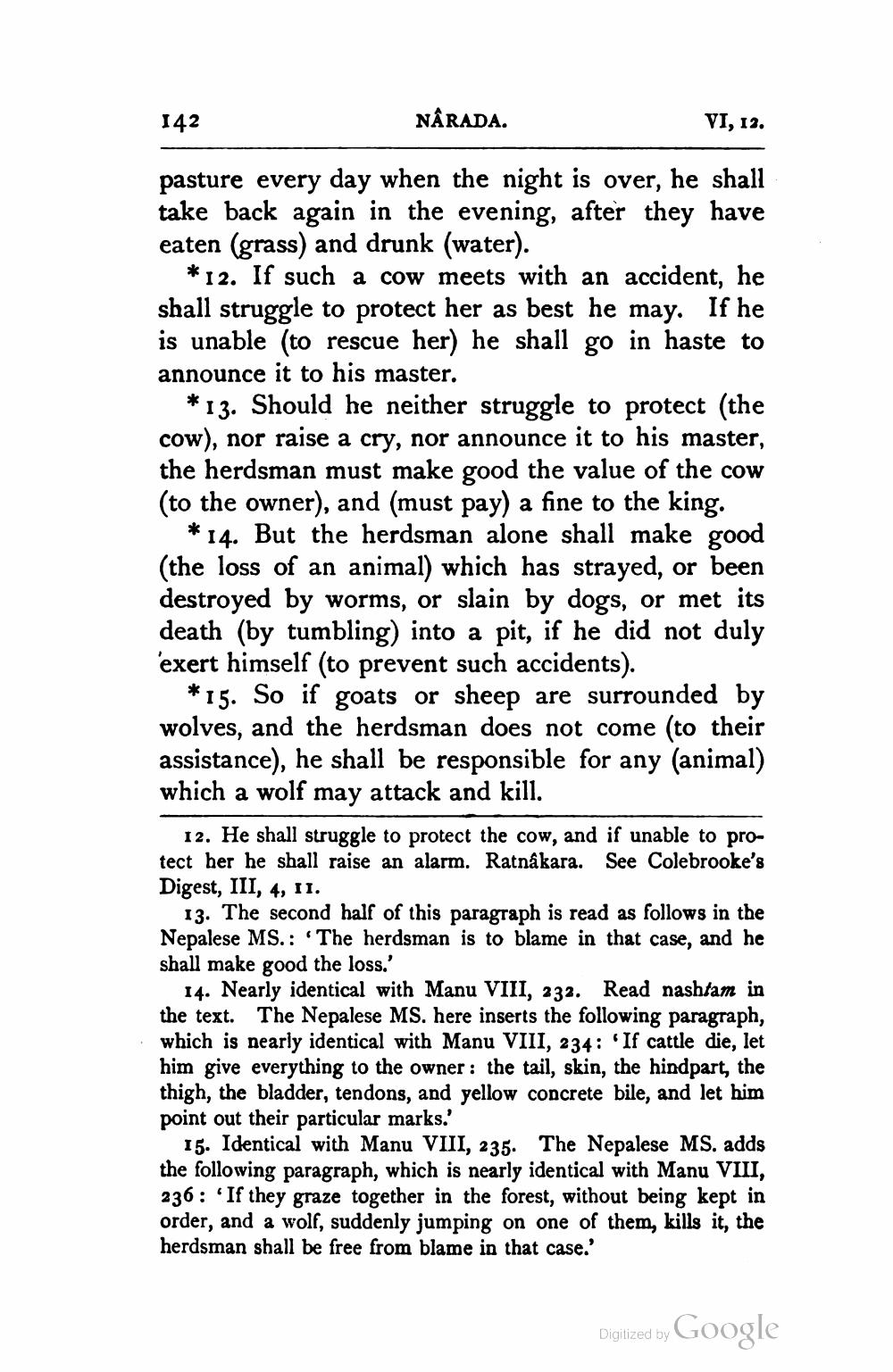________________
142
NÂRADA.
VI, 12.
pasture every day when the night is over, he shall take back again in the evening, after they have eaten (grass) and drunk (water).
*12. If such a cow meets with an accident, he shall struggle to protect her as best he may. If he is unable to rescue her) he shall go in haste to announce it to his master.
*13. Should he neither struggle to protect (the cow), nor raise a cry, nor announce it to his master, the herdsman must make good the value of the cow (to the owner), and (must pay) a fine to the king.
*14. But the herdsman alone shall make good (the loss of an animal) which has strayed, or been destroyed by worms, or slain by dogs, or met its death (by tumbling) into a pit, if he did not duly 'exert himself (to prevent such accidents).
*15. So if goats or sheep are surrounded by wolves, and the herdsman does not come (to their assistance), he shall be responsible for any (animal) which a wolf may attack and kill.
12. He shall struggle to protect the cow, and if unable to protect her he shall raise an alarm. Ratnakara. See Colebrooke's Digest, III, 4, 11.
13. The second half of this paragraph is read as follows in the Nepalese MS.: The herdsman is to blame in that case, and he shall make good the loss.'
14. Nearly identical with Manu VIII, 232. Read nashtam in the text. The Nepalese MS. here inserts the following paragraph, which is nearly identical with Manu VIII, 234: 'If cattle die, let him give everything to the owner : the tail, skin, the hindpart, the thigh, the bladder, tendons, and yellow concrete bile, and let him point out their particular marks.'
15. Identical with Manu VIII, 235. The Nepalese MS. adds the following paragraph, which is nearly identical with Manu VIII, 236 : 'If they graze together in the forest, without being kept in order, and a wolf, suddenly jumping on one of them, kills it, the herdsman shall be free from blame in that case.'
Digitized by Google




